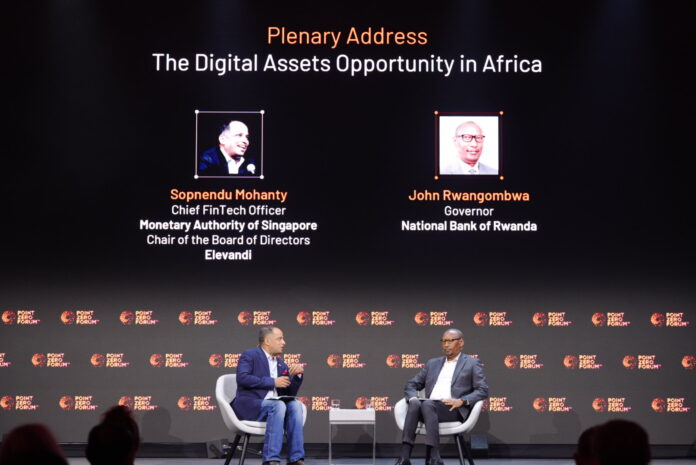The narrative around Africa’s economic development has often been one of potential rather than actualization. However, recent advancements in financial technology (FinTech) and digital economy infrastructure indicate that Africa is poised to take significant strides in the coming decade. In a recent discussion, John Rwangombwa, Governor of the National Bank of Rwanda, highlighted key factors driving this transformation and the promising future that lies ahead for the continent.
A Young, Tech-Savvy Population
One of the most compelling advantages Africa holds is its youthful demographic. “Africa’s young population, with 60% under the age of 30, is not only large but increasingly educated and digitally aware,” John noted. This demographic is naturally inclined towards adopting new technologies, providing a fertile ground for FinTech innovations. The willingness of young Africans to embrace and test new digital products is a critical factor for the continent to take a leading role in the global digital economy.
Enabling Policies and Infrastructure
Governments across Africa have recognized the potential of this young population and are investing heavily in digital infrastructure. “There is a clear push from African governments to improve infrastructure and implement enabling regulatory frameworks to promote FinTech and financial inclusion,” John explained.
Rwanda, for instance, has seen a remarkable increase in financial inclusion, largely driven by mobile money services. “From 21% in 2008, formal financial inclusion in Rwanda has skyrocketed to 92%, with mobile money services accounting for 77% of this growth,” he added. This trend is reflective of broader continental efforts to integrate more people into the formal financial system.
The African Continental Free Trade Area (AfCFTA)
Another transformative initiative is the African Continental Free Trade Area (AfCFTA), which aims to consolidate Africa into a single market with a GDP of $3.4 trillion. “AfCFTA is a game-changer, breaking down trade barriers and creating a vast, unified market for digital solutions,” John emphasized. This agreement not only facilitates trade but also enhances the scalability of digital innovations, making it easier for businesses to expand across borders.
Innovation Hubs and Supportive Ecosystems
Innovation hubs are sprouting across Africa, providing crucial support to startups and SMEs. “In Rwanda, we promote innovation hubs that support young innovators, linking them with financial institutions and policymakers,” John stated. These hubs foster an ecosystem where new ideas can be developed and tested, driving further growth in the FinTech sector. Rwanda’s Kigali International Financial Centre, launched in 2020, aims to be a catalyst for FinTech solutions, attracting international investors and facilitating financial sector growth across Africa.
Regulatory Harmonization and Collaboration
Despite significant progress, regulatory fragmentation remains a challenge. However, there are concerted efforts to harmonize regulations across the continent. “We are working on harmonizing regulatory regimes and supervisory practices within the East African community and beyond,” John noted. This regulatory cohesion is crucial to create an environment that supports innovation while ensuring financial stability.
Digital Lending and Payments
Digital lending is another area with immense potential. “In Rwanda, digital loans have more than doubled compared to traditional banking loans,” John highlighted. This surge in digital lending is not only increasing access to credit but also driving economic inclusion. Moreover, initiatives like the Pan-African Payment System are being developed to facilitate seamless, affordable cross-border payments, further integrating African economies.
Opportunities in Capital Markets
While Africa’s capital markets are still young and shallow, there are initiatives to integrate and deepen them. “We are linking the stock exchanges of Nairobi, Kigali, Kampala, and Dar es Salaam to create a more robust and liquid market,” John explained. This integration will enable investors to trade seamlessly across borders, enhancing the attractiveness of African capital markets.
The Inclusive FinTech Forum
The upcoming Inclusive FinTech Forum in Kigali is set to be a major event, showcasing the continent’s FinTech innovations and opportunities. “This forum will bring together global innovators, policymakers, and financial institutions to exchange ideas and explore opportunities in Africa,” John stated. With a focus on digital lending, payments, and digital assets, the forum aims to drive further growth and innovation in the African FinTech landscape.
A Promising Future
Africa is at a pivotal moment in its economic development journey. With a young, tech-savvy population, supportive policies, and initiatives like AfCFTA, the continent is well-positioned to become a global leader in FinTech and digital economy. As John aptly put it: “Africa invites you to be part of this change, to invest and grow with a continent that is brimming with opportunities.” The inclusive and collaborative efforts seen in forums and initiatives across Africa are paving the way for a future where the continent’s full potential can be realized.











